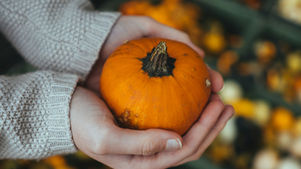Agritech Revolution: How IoT is Redefining Farming – Top Trends
- Jun 27, 2025
- 2 min read
The Internet of Things (IoT) is revolutionizing agriculture by helping farmers boost efficiency, reduce expenses, and use resources intelligently.This article covers the latest news in IoT-driven agriculture, highlighting key developments, interesting facts, expert views, and applicable conclusions.

1. IoT Agriculture Market – Key Figures
Smart agriculture was valued at USD 15.9 bn in 2025, projected to rise to 43.3 bn by 2034 (CAGR 11.8%) .
Another forecast estimates USD 16.8 bn in 2025, growing to 25.6 bn by 2029 (CAGR 11.1%) .
Grand View Research reports USD 28.6 bn in 2024, with 10.5% annual growth through 2030 .
Conclusion: Agriculture IoT is one of the fastest-growing tech markets, with strong mid‑ to long‑term prospects.
2. Major Trends & Technologies
Soil sensors & drones: Devices like Teralytic measure moisture, salinity, and nutrients, transmitting via LoRaWAN; drones complement monitoring .
Precision agriculture & AI: Platforms using AI/ML optimize irrigation, fertilizer, and pest control; examples include Semios and Plantix .
Robotics & automation: Self-driving tractors and robotic harvesters reduce labor dependency .
Soilless farming (CEA): IoT-enabled hydroponics and aeroponics support controlled, high-density cultivation.
Connectivity: Hybrid LPWAN + 5G models reduce costs by ~30% and enhance rural coverage .
3. Interesting Facts
IoT4Ag center in the U.S. develops biodegradable soil/leaf sensors providing real-time data monitoring .
Bangladesh research achieves 99.45% accuracy in crop forecasting with IoT + ML + blockchain (Ethereum) .
Uganda’s IoT framework enhances smallholder maize resilience and affordability .
PAU-BITS Pilani partnership in India integrates drones, IoT, robotics, GIS to optimize irrigation and fertilizer use .
4. Opinions & Perspectives
Gary Sumihiro emphasizes precision agriculture (IoT + AI + 5G/Open RAN) as essential for food security and economic growth.
Industry voices note IoT adoption is slowed by high costs and rural connectivity gaps .
Academics call for collaboration among researchers, policymakers, and farmers to enable sustainable digital agriculture .
Conclusion
IoT technology is reshaping agriculture through accelerated adoption and profound impacts on farm productivity and sustainability.







































































































































Comments